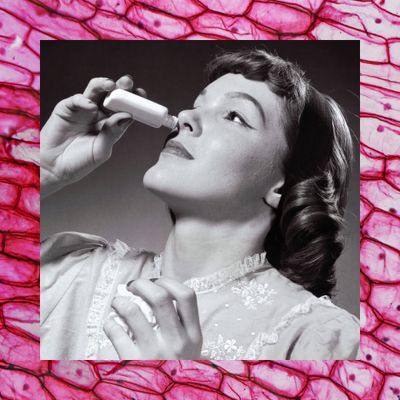
Welcome to Am I Dying, a column that hopes to save you from your late-night WebMD spiraling. You can email us your hypochondriac questions at amidying@nymag.com.
I have some leftover (but not even close to expired) antibiotics, and I’m pretty sure I have a sinus infection. My nose/face hurts, and won’t stop running, and it’s been two weeks since I first showed signs of a cold. I really hate going to the doctor because it’s impossible to make an appointment AND then to have to wait 40 minutes in the waiting room (who has the time?), so can I just go ahead and diagnose myself with this infection to justify the meds? Or am I going to die of an antibiotic-resistant superbug if I take these?
Okay, I hear you. A few years ago I got sinus infections all the time, and grew intimately familiar with the telltale symptoms — the massively uncomfortable nose/face pain you describe being the worst and hardest to relieve among them. It felt like I was racking up $50 copays at the urgent care every month, and had I had a bottle of extra antibiotics lying around, I might have found myself similarly tempted to attack the problem myself. But in going to all those doctors’ appointments — usually with different physicians, because I have yet to procure a regular physician in New York despite having lived here for five years — I did learn something about sinus infections, which I will share with you now: most sinus infections go away without antibiotics, typically within seven to ten day for viral infections, and within two weeks for bacterial ones. You probably don’t need them. (In your case, you may well have had a cold that turned into a sinus infection, in which case you probably haven’t had an actual sinus infection for two weeks.)
But don’t take my word for it: here’s Dr. Richard Lebowitz, a rhinologist and professor at NYU Langone Health. “With sinusitis, uncomplicated sinus infections, more than 90 percent of those will get better without an antibiotic,” he says. (“Katie is right,” in so many words.) “You don’t have to treat everything with an antibiotic.” While you personally are not increasing your risk of contracting an antibiotic-resistant superbug by self-administering a few extra antibiotics (this is more of a population problem, Lebowitz says), there is a reason doctors try not to over-prescribe them: antibiotics don’t kill all bacteria that cause a given infection, and those that survive can more easily become antibiotic-resistant, and therefore cause subsequent infections.
It’s also quite possible that the infection you’re experiencing now isn’t a new problem, but an echo of a previous infection, in which case it won’t serve you well to take the same medication that failed to kill the bacteria the first time. “When we treat with antibiotics, we don’t kill every bacteria,” says Lebowitz. “We give our body’s immune system the help that it needs to eradicate this infection. But sometimes, you get sort of a bounce-back, because the infection wasn’t completely treated. And maybe that’s because [it was] resistant to the antibiotics, and you may not choose the same one next time.” Only a doctor familiar with your history (or who can access your records) can assess which antibiotic (if any) is most likely to help you.
I don’t mean to guilt you, but Lebowitz did raise the question, and I think it’s a fair one: why do you have extra antibiotics lying around in the first place? Generally, most doctors prescribe the amount they want you to take, and no more, so I hope it’s not the case that you stopped your last course when you started to feel better. They specifically tell you not to do that! (Aren’t you afraid your doctor will find out, and be disappointed in you? I always am.) Or, as Lebowitz put it, “There are so many things wrong with this scenario.”
So don’t take the antibiotics, unless you go to a doctor, and they tell you to, but they’ll give you new ones. The good news here is that you probably don’t have to go to the doctor, because your sinus infection (if indeed that’s what it is) will probably get better in time. Here are a few other ways you can make the wait less painful, per Lebowitz: nasal irrigation, like the neti pot (I know, but it helps so much), nasal steroid sprays, decongestants, and mucus thinning medicines like Robitussin or Mucinex. You can also put a warm compress on your face, as one previous doctor told me to do, but Lebowitz told me that probably doesn’t do anything, though “it may feel nice.” Which is not nothing!





